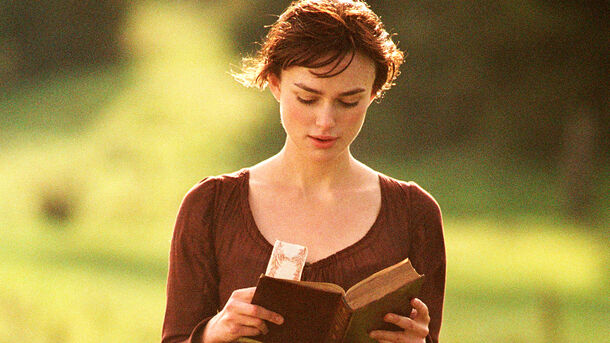This Jane Austen Adaptation Had to Tone The Spice Down For Its U.K. Release

The hand touch is as scandalous as it gets.
Throughout the years there have been many various attempts to adapt Jane Austen’s romantic novels into screenplays, but only few succeeded. Although the fans of period dramas have already come to terms that almost no studio or network can provide historical accuracy, Austen’s legacy still remains the most protected among fans.
With large following of readers and admirers of the author’s writing style, nuanced stories and complex characters, following each and every decision the production team has made, adapting Jane Austen has always been a challenge. 2005’s Pride & Prejudice, however, still remains the best example of Jane Austen’s romance done right.
From the charismatic leads, who managed to recreate the burning chemistry between their characters without falling into moder vulgar tropes, to peculiar editing decisions to fit the needs of each particular market, the movie still remains a hit that no one managed to dethrone, no matter how many tried.
Why Does Pride & Prejudice Have Different Endings?
If you weren't sure how seriously British audiences take their Jane Austen, this story will prove you right. If you live in the U.S., you probably remember the adorable exchange between Elizabeth and Mr. Darcy as they discuss her name after they're married. The movie ends with a few kisses and two characters who are finally extraordinarily happy together.
The average British viewer, however, didn't get to see this scene at first. The movie was released in theaters without it, as the audience it was tested on did not appreciate it. Some found the moment too maudlin or cheesy, and others called it "overly sexualized," which wasn't in keeping with Austen's novel.
While some could argue that there was more sexual tension in the famous hand-touching scene than in the entire final sequence, the decision to remove it for the British premiere was ultimately correct. The film became a commercial success, opening to £2.5 million ($4.6 million) domestically in its first week and going on to gross $121 million worldwide.
Moreover, just a year later, the extra scene was released to British audiences as part of the standard VHS and DVD package, which also included an audio commentary by director Joe Wright and a look at Austen's own life.
Whether you think the kissing scene was really too much for Pride & Prejudice, or thought it was a perfectly appropriate happy ending, you can re-watch the movie by streaming it on Peacock or renting it on Prime Video and Apple TV.
